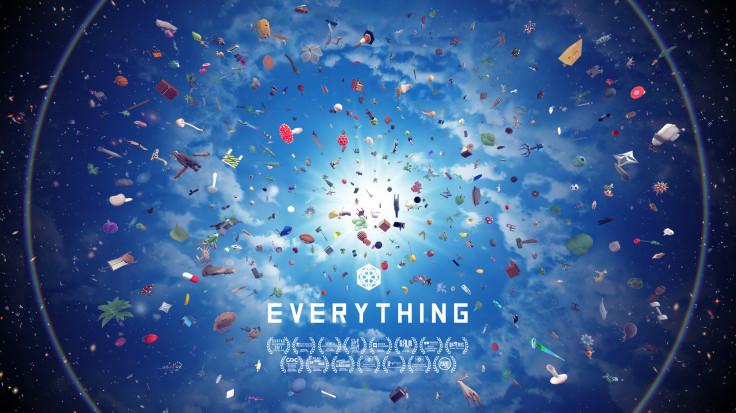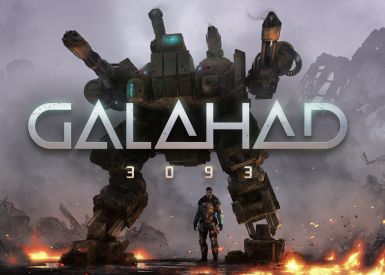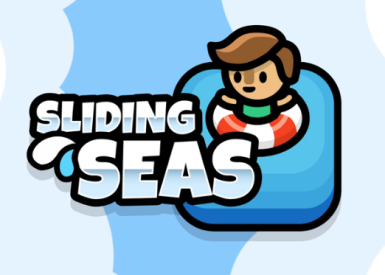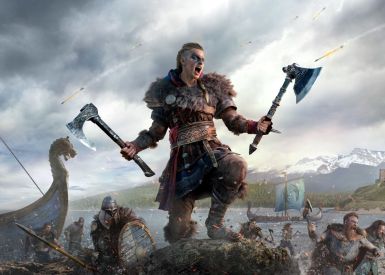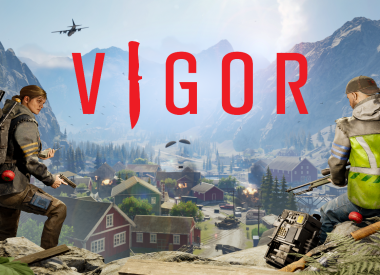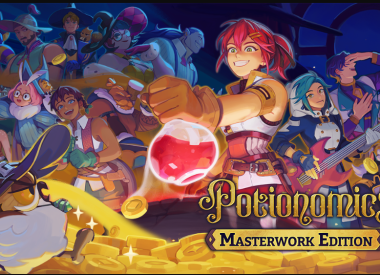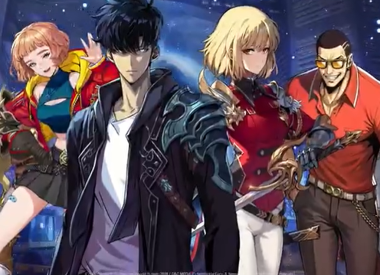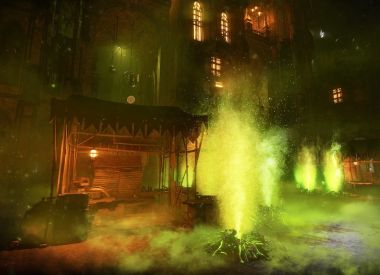A harbour seal the size of a sun just shrank and became a palm tree. Another palm trees joins it, then another. Flying through space the palm trees light upon a planet and become a continent, then a mountain lion rolling paw-over-maw, not walking, on that continent we just were, until it turns again, this time into a soil mite. The soil mite begins to sing.
This is a scene from David OReilly’s game Everything. In Everything you are everything. And Everything tells you that even in life you’re yourself, but not just yourself. You are everything. We are each other. You. Me. David OReilly. Everyone. So let’s all of us take a step back: what the hell are we talking about?
Everything creator David OReilly — who switched from award-winning 3D animations like The External World to video games with 2014’s Mountain — hesitates as we describe our game to us.
“There are so many different angles to approach it from,” he says. “From a general sort of game perspective, it’s a nature simulation, where every object in the game is a playable character and it’s like a narrated sandbox-experience-type-thing. There’s also this other aspect to it where it’s a very honest and philosophical dimension of the game, which is essentially how I see the world and about how it’s arranged and how it arranges itself and how we take different points of view on it.”
In practical terms, that means roaming around — first as animals, but soon enough as anything else we can imagine — to dance with other things, listen to the thoughts of a teapot or a salmon, then shrink into the microverse. We can play Everything like a collecting game, there are even a few puzzles (such as finding our way out of a brightly-colored limbo of isolation and narcissistic consumer goods), or we can just wander.
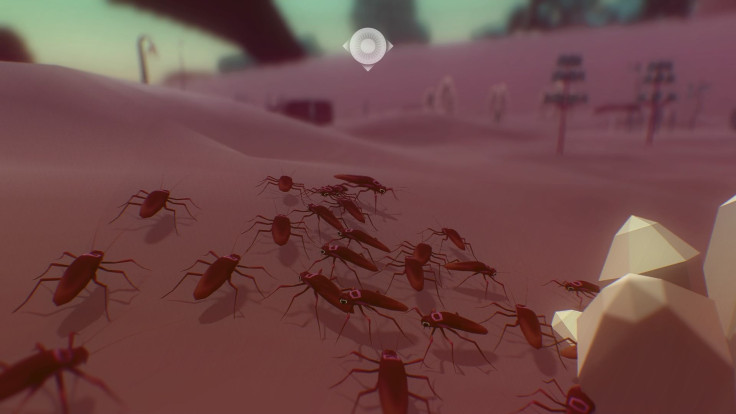
Or we can set down the controller and let Everything play as us (and itself and the couch and your neighbor… are you starting to get the idea?) with an autoplay mechanic. As we sit here, looking over the transcript from our conversation with OReilly, Everything plays on our TV inside our apartment as rain leaks in through a crack above the kitchen window.
A team of alarm clocks just took flight then rang all at once then *poof* they became pool tables.
The space between us does not separate, but binds us in a grand pattern. Individuals, objects, even ideas are separate and discrete entities only in our human conceptions, rather than actuality, which is of one indivisible, interlocking whole. Everything’s narrator is the late philosopher Alan Watts. Known for popularizing Buddhist philosophy with Western audiences, Watts’ ideas are the spirit of Everything. Voice-overs from Watts scattered across the game speak to us:
“Every tiniest little thing that comes into being, every minute little fruit fly or gnat or bacterium, I will go so far as to say, is an event upon which this whole cosmos depends… It’s not only that every little organism that exists depends on its total environment, the reverse is also true, that the total environment depends on each and every one of those little organisms. So you can say, this universe exists on an arrangement of pattern in which every event is essential to the whole thing.”
But Everything isn’t the lesson, it’s the experience. It’s philosophy unbound, no longer, as OReilly describes it, “this thing that’s trapped in books.” In addition to Watts’ narration, Everything is full of pop-up, text bubble thoughts inspired by a range of philosophers, from the Stoics to Ralph Waldo Emerson.
“They’re very simple and very direct. And they’re thoughts about the world and they’re thoughts about life, but they come in the form of advice,” OReilly says of philosophers like Seneca. “There’s just this treasure trove of interesting ideas that have been written that are still very relevant and are still as useful or interesting as they were two or three thousand years ago.”
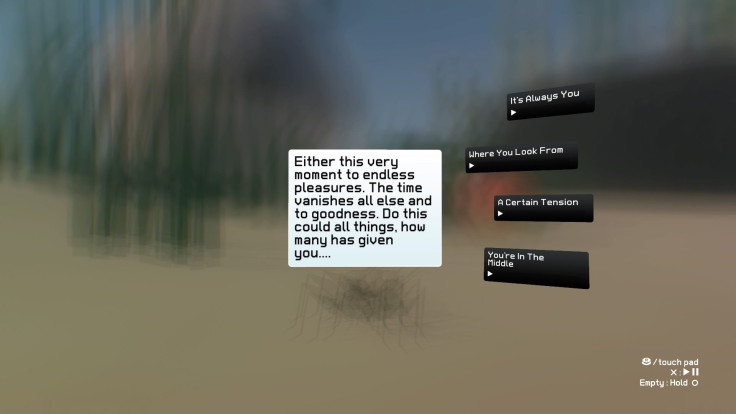
Other thoughts are ramblings, snippets of song or even cries for help from traditionally inanimate objects. You can collect thoughts or you can relinquish them, erasing your catalog of memories with a button press to return to the effervescence and totality of emptiness (Empty: Hold O).
A tardigrade the size of a thunderstorm just rose from the ocean and soared into the night sky.
Playing Everything is deeply absorbing, often moving and occasionally soul-quaking. The moment the controller’s set down there’s a flash of near-resentment at having been swept away. The analytical mind returns… and it has questions. Isn’t this just everything-is-one hippie shit? Is this how Jaden Smith feels all the time? And why do some of the thoughts talk to the player by name (or the name you give it)? How much hubris does it take to use a video game as a medium of direct address, like a bullhorn pointed at your eyes?
It’s personal. “Those were things I came across that were really important to me in life," OReilly says. And why not share?
“I just love making things and that’s my path," OReilly says. "And so it’s not completely driven by ‘these are ideas that I have to give out.’ It’s also driven by ‘what would be the ideal thing that I would want to play?’”
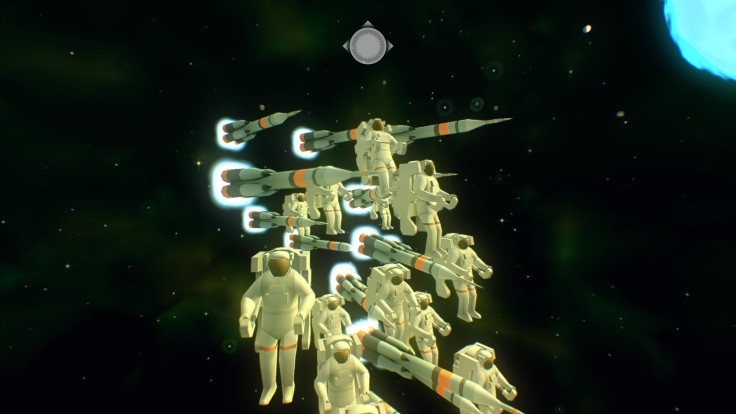
And while Everything is first and foremost about holism, the idea that individual parts cannot exist independent of a collective whole, the immensity of its procedurally-generated environments soon spawn new and unexpected thoughts.
“You can create worlds within worlds. When you’re in a microscopic scale you can turn into a planet and enter that planet. And let’s say you’re a whale on that planet you can turn into a planet and enter that planet,” OReilly said, describing one of his favorite gameplay elements that’s not immediately evident to first-time players. And then you can pop back out, layer by layer, uncreating multiple worlds and realities.
Though he’s talking about whales and planets, this process of recursion echoes cognitive scientist Douglas Hofstadter. In his landmark book on mathematics, music and consciousness Gödel, Escher, Bach: An Eternal Golden Braid he describes “pushing in” and “popping up” through different layers of meaning — such as in the nested language of computers, from machine code to assembly to C++ — producing a pattern in which “new things emerge from old things by fixed rules.” He writes that the structure of elementary particles “nested inside each other,” is “yet another way in which the whole world is built out of recursion.”
A pine tree just became a pollen spore the size of an American Gladiator ball cage, then an iced-over continent with hearts fluttering over its landmass as it partners with an oil rig .
Like Hofstadter, who uses the languages of mathematics, music and art to explicate a nearly ineffable theory of the “strange loop” mind, Everything has its own locus of unreality. Shrink small enough or grow big enough and you’ll hit a null space not macro or micro that bridges the galactic and the atomic. You fall into a world of concepts and become mysterious 1D, 2D and 3D things like Feedback Cubes, Convex Stellated Polyhedrons, Tetra Clouds and Irregular Nested Structures. It’s a zone of mirror and mathematics, where sensation is synaesthesia, music is light.
OReilly collaborated on this null space with tumblr artist 30000 FPS, whose GIFs he described as “from another dimension” and “like they’re generated by AI or the dream of an AI.”
“It was something that I had imagined from the start. I always wanted to have the whole thing be cyclical. So I wanted this particularly abstract place in between, like this focal point in the middle of a lens. So it’s a place essentially outside of time and outside of space. It’s all essentially geometry,” OReilly said. “There are some literal things in there — electrons, Higgs bosons and things — that aren’t directly observable things. It’s something beneath everything that has a very organized structure and it’s essentially lit up by music.”
There are times when we feel almost abstracted by Everything. And then there are moments when Everything feels very literal, almost practical. Late in our first playthrough (the gameplay arc is slowly learning new ways to transform, grow, shrink, sing, think, join and create) a thought popped up, unbidden.
“Listen to me Andrew,” the thought, my thought, our thought, begins:
“All that you could ever want is yours if you stopped denying it to yourself. Be done with the past, leave the future to providence and direct this very moment to goodness. Do this with full acceptance of what you’ve been given — since nature made it for you and you for it. Be honest and straightforward in your speech and act within the laws of your world, respecting the rights of each thing. Don’t give in to the slander of others or to endless pleasures. The time of your departure draws near — so forget all else and pay attention only to your will and to the divine spark within you. Trade your fear of leaving this life for the fear of never beginning it. You can yet still become great, worthy of the universe that gave birth to you — rather than a stranger in your own land, confused and angered by each day’s happenings, hanging on one until the next arrives. Now go, and live!”
The words sound familiar and we soon find their echo: it’s, in spirit, a rewording of Marcus Aurelius’ famous advice on procrastination, retasked as a direct address from Everything to me and to you. To us, to we. The original reads:
“Think of your many years of procrastination; how the gods have repeatedly granted you further periods of grace, of which you have taken no advantage. It is time now to realize the nature of the universe to which you belong, and of that controlling power whose offspring you are; and to understand that your time has a limit set to it. Use it, then, to advance your enlightenment; or it will be gone, and never in your power again.”
Both versions are good advice, though we must hear it again and again and again in our day-to-day lives, where advice struggles to transform into action. In real life it is not so easy to become divinity, to realize the true nature of the universe or to abandon the span of time in favor of the eternal present of the moment and the goodness to be found there. (And writing “we” instead of “I” is getting tiring.) But in Everything, the hard work becomes as intuitive as muscle memory — sensations of peace and holism mapped out like the Konami Code, the branches of a birch tree and the path of nerves defining the cyber vein we’ve just become.
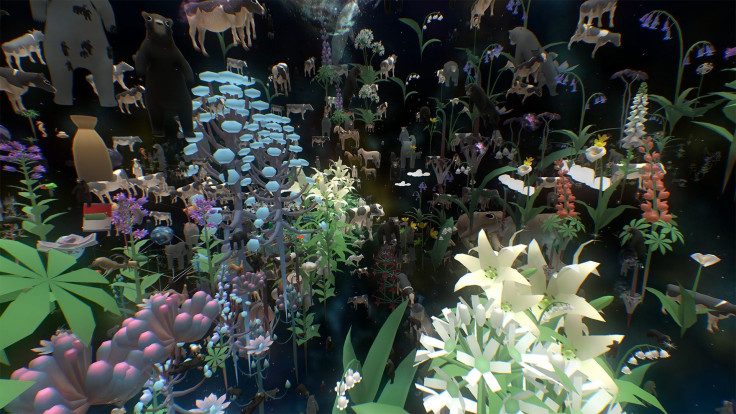
Everything was created by David OReilly, programmed by Damien Di Fede, sound designed by Eduardo Ortiz Frau, with music by Ben Lukas Boysen and Sebastian Plano.
Everything is available now for PS4 and will be released on Steam for PC and Mac April 21.

